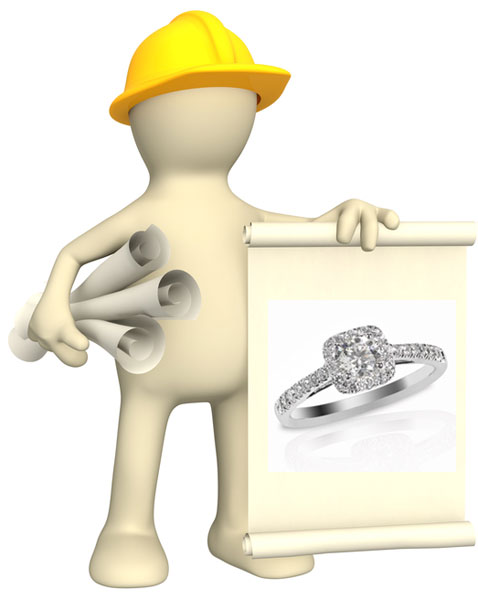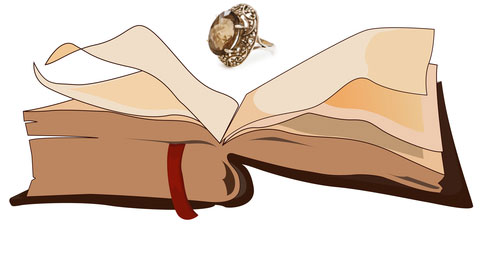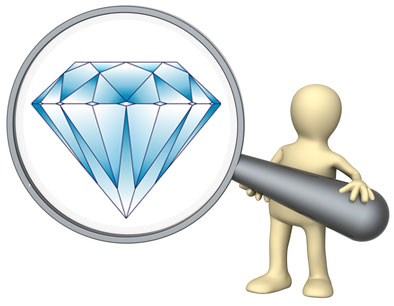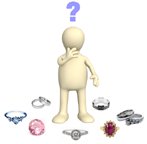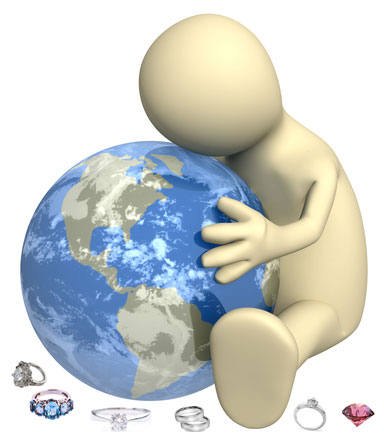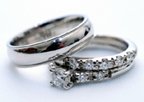Rhodium Wedding Ring Set
Will bleach and other household cleaning items effect a heavily plated rhodium wedding ring?

Hello,
Rhodium is highly resistant to acids, chemicals and chlorine, but it is generally best not to expose your ring to bleach/chlorine and household chemicals - and here is why.
Rhodium can slightly increase the durability of a ring - particularly when it comes to scratches - but rings with rhodium plate should still be treated with care (especially every day wear rings like engagement and wedding rings).
As the rhodium plate begins to wear away, any exposure to bleach or other chemicals can lead to a chemical attack on the gold underneath - and especially the prongs. With time, the prongs could eventually fail and the settings could be lost.
Even if the rhodium plate still looks like it is covering the entire ring, there could be microscopic areas in high wear places on the ring - like where the ring rubs most frequently on the finger - that are thin or where the rhodium is no longer protecting the ring. And this would leave these areas on the gold band vulnerable to chemicals.
And while rhodium is highly resistant to chemicals, it is not resistant to wear. If you wear your rings while you wash dishes or perform household chores without gloves - the rhodium will wear at an increased rate.
Keep in mind too that most wedding rings receive a similar plate of rhodium - which is less than the width of a human hair. The plate cannot be too thick, or it will actually become brittle - so unfortunately it is not possible to apply an extra thick plate that will protect the ring for an increase amount of time.
Jewelers and manufactures of wedding and engagement rings as well recommend removing rings before swimming in chlorinated pools or hot tubs - and limiting the rings' exposure to household chemicals.
I hope this answers your question - and do write back again if you have any additional questions!
Suzanne Gardner
Everything Wedding Rings
Recommended & Trusted Jewelers
Our Advertisement Policy
Adin Fine Antique Jewelry
Use Code=Everything-Wedding-Rings
For a 5% Discount



